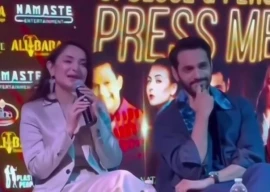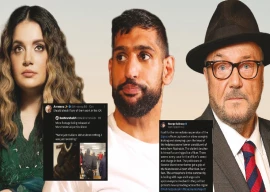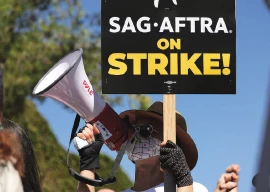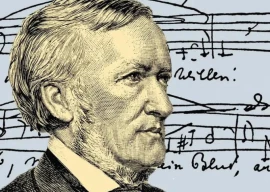
Music companies and major artists across the globe have taken a big leap for the promotion of music — they use the internet to promote music. In Pakistan, very few companies have been able to manipulate this frontier to put local artists on the global map. However, although the trend is largely unexplored in this part of the world, it’s catching up with many mainstream artists going for online web-telecasting.
Recently Ali Zafar opted for a live-web telecast of his concert, allowing young fans to enjoy the performance while sitting in the comfort of their homes. Bands such as Overload have also started an online live concert series, which covers the band’s favourite artists, thus rapidly increasing exposure for the band on a global level.
How it all began in Pakistan
Stage Monks, a unique platform for musicians, started in February this year when it carried out Pakistan’s first globally-telecast live performance online. The event, held at Gloria Jean’s cafe in Lahore, saw several leading local artists including SYMT and Jimmy Khan performing live for people across the globe.
“It was really cool, imagine 3,000 people tuned in live to see a small local gig,” says CEO Walnut studios, Adnan Butt. “There were people from Quetta interacting and requesting songs to play live.”
Butt has been working for one of the first Pakistani record labels to gain entry into the global music scene through maximum exposure via the internet. Recently, Walnut Media also used live web telecasting for Open Mic (organised by the Knowledge Factory) and is now looking to hold several virtual gigs in places such as Islamabad as well.
“We have to make our presence felt throughout the world. It would be amazing to have local artists collaborate with the global ones,” says Butt. “You can easily replace television with the internet and it’s easier to market music through this media.”
Apart from that, Butt has been focusing on English covers. He pointing out that cover artists like Tyler Ward and Kurt Schneider have an estimated 90 million users on web platforms such as YouTube. The idea is to amass an adequate following that allows an artist to gain not only international recognition but also a self-sustaining method to make money through web initiatives such as digital downloads and ringtone purchases. Thus, it ensures that the artists are driven away from issues such as artist monopolies, piracy and lack of record companies.
Locally, the notion of playing covers has been widely criticised. In fact, some people even attribute it as one of the reasons for the collapse of the music industry in Pakistan. Despite this, covers done by leading artists such as Faiza Mujahid — famous for the 1992 World Cup theme song — and lesser known Abdullah Qureshi — popular for his cover of “How to Save a Life” (by The Fray) — have shown some potential of gaining viral publicity.
Walnut studios are slowly turning into a hub of local music talent. The in-house productions of top five billboard singles are created with experienced producers and mainstream artists. They have widely collaborated with Octave, closely associated with organising underground gigs. Interestingly, some of the talent found was through scouting and referrals. The company then undertakes the responsibility of recording and producing a track which is then promoted through the internet with the hope of attracting views through YouTube.
Butt rues the stagnation of the local music industry. “There was a lifecycle for underground artists who, after several years of performing on the sidelines, could finally make their way to the mainstream,” he said. However, now the case is different as the underground scene continues to expand while the mainstream music arena is on the decline.
Published in The Express Tribune, July 22nd, 2011.


















COMMENTS
Comments are moderated and generally will be posted if they are on-topic and not abusive.
For more information, please see our Comments FAQ